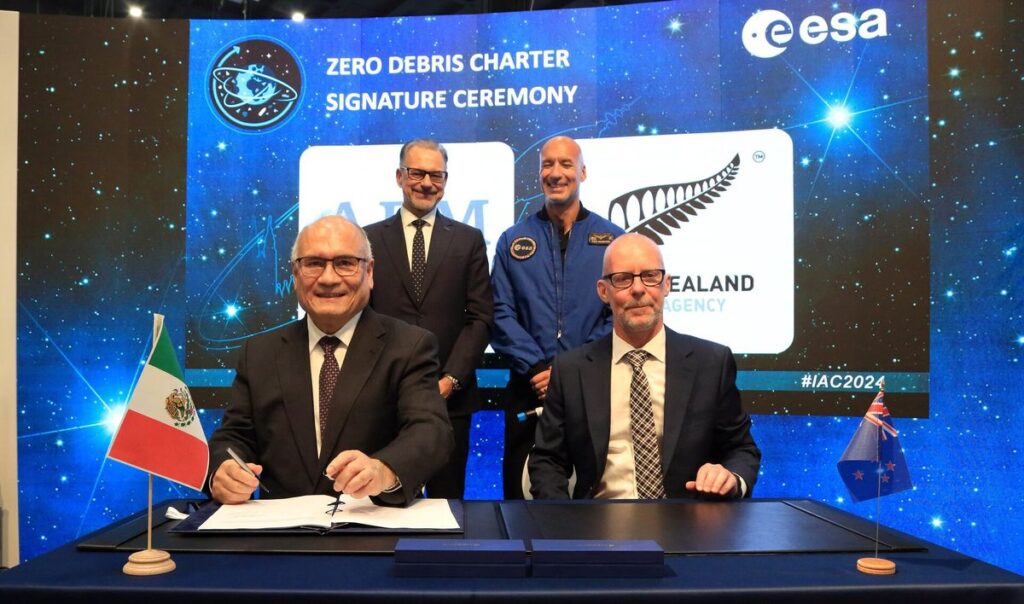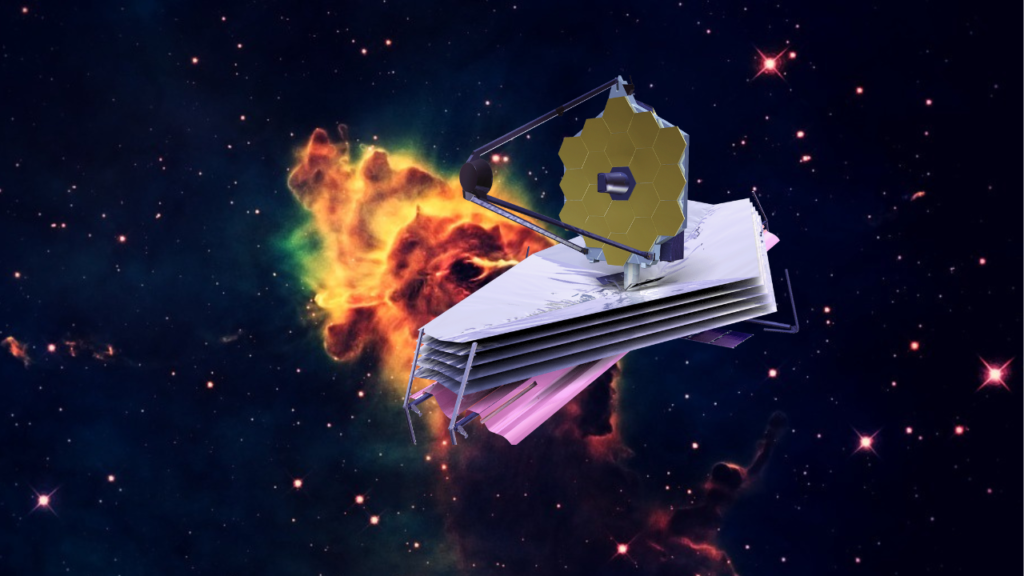The European Space Agency (ESA) is making strides in its efforts to boost space safety and sustainability.
ESA is promoting the Zero Debris Charter, which aims to increase international efforts and cooperation to solve Earth’s growing space junk problem. And the agency now has attracted well over 100 signatories to the charter, following a ceremony at the International Astronautical Congress (IAC) in Milan, Italy, on Oct. 14.
New Zealand and Mexico were among the 24 new signatories at the IAC, becoming the first countries from outside Europe to sign the charter.
“The Zero Debris Charter signals Europe’s unwavering commitment to be a world leader in reducing and remediating space debris, fostering collective action by a large community of space actors around the world,” said Salvador Landeros Ayala, general director at the Mexican Space Agency.
“We place a lot of importance on space sustainability in New Zealand, and ESA’s Zero Debris Charter aligns well with our values,” said Iain Cossar, head of the New Zealand Space Agency.
The Zero Debris Charter was published in November 2023. It is not an ESA charter, but represents a collaborative effort within the global space community and serves as a foundational document. The charter sets out goals and guiding principles, and these are to be developed collaboratively into actionable and measurable targets.
Guiding principles include that space debris should not be intentional, adverse effects should be anticipated and mitigated to the greatest extent possible, and constant and collaborative efforts should be made to understand the problem. Jointly defined targets include removing spacecraft from orbit in a timely manner at end of mission, safe reentry practices and data sharing.
Currently, ESA estimates that more than 1 million pieces of debris 0.4 inches (1 centimeter) in size or greater are in orbit around Earth, posing a threat to space operations, whether human spaceflight, commercial activities, science or other missions.
“I think it’s beautiful that, in a change of paradigm, a big leap of imagination made us decide to have a volunteer charter,” Luca Parmitano, ESA astronaut, said at the ceremony. “It’s everybody saying: We think this is important, and we want to do something about it, not only for the future, but even now. We want to act. We want to be an active part of cleaning up space.”
The total number of signatories is 15 countries and over 100 companies, research centers and international organizations, with many more having stated their intent to follow suit, ESA said in a statement.
ESA Director-General Josef Aschbacher stressed the importance of sustainability in space at the event, highlighting it as a major priority since becoming the new ESA head.
“I’m, honestly speaking, amazed, surprised and impressed, how many people have been signing up to this charter on a voluntary basis,” Aschbacher said. “We are a space agency, we are not a regulatory body. We will not enforce it. We will not bring you to court if you don’t, if you don’t adhere to the principles.”
“It’s a moral commitment, and this moral commitment is so strong and it’s so important that voluntarily, many people have decided to sign up, countries as well as companies, individual organizations, governmental organizations, nongovernmental organizations,” said Aschbacher.
Other new signatories on Oct. 14 include a range of institutions, such as the Australian National University Institute for Space, Alpha Impulsion and ARCA Dynamics and Intella.
The charter aims to ensure that space remains clean and safe for future generations, and new technologies will need to be developed to help achieve what ESA describes as realistic-yet-ambitious targets.
Source: https://www.space.com/europe-space-junk-zero-debris-charter-100-partners-iac



